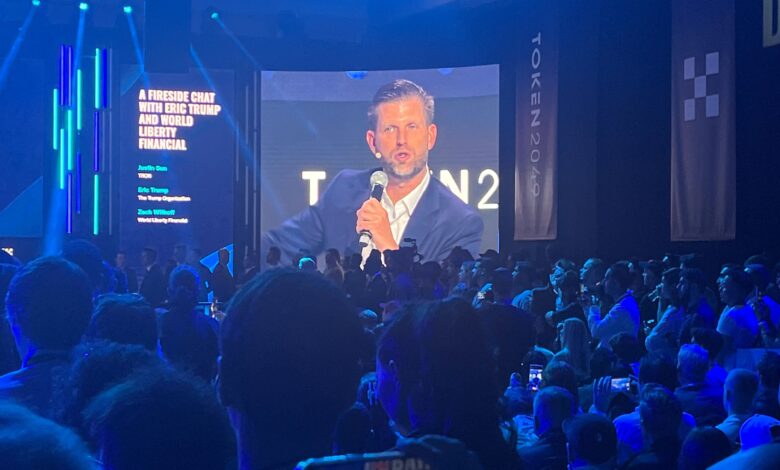World Liberty’s USD1 Will Integrate With Tron; WLFI’s Witkoff Teases More Partnerships


Eric Trump, son of U.S. President Donald Trump, said that World Liberty Financial’s dollar denominated stablecoin (USD1) has been officially selected as the official stablecoin to close MGX’s $2 billion investment in Binance.
Speaking at the Token2049 event in Dubai, Trump also announced that USD1 will be integrating with the Tron ecosystem, which is backed by billionaire Justin Sun.
Earlier this year, Abu Dhabi-based investment firm MGX put $2 billion to buy a stake in Binance, marking one of the first institutional investment in the world’s largest exchange.
The Trump-family backed World Liberty Financial, announced its plans for launching a dollar-backed stablecoin with BitGo in March.
“USD1 will become one of the most transparent and regulated stablecoin in the world. It is backed by short term treasury and cash equivalent, not only do we want to create a product in our stable point USD, one that can be sent across borders in a very seamless way, but transparency and frankly, consumer safety is paramount, right?” Trump added.
World Liberty’s co-founder, Zach Witkoff, speaking at the same event teased more future partnerships for the DeFi protocol.
“We have a lot on the way at World liberty, so stay tuned. We’re working on, you know, a lot of different DeFi integrations. Right now, we do aim to establish USD1 as the preferred stablecoin in the DeFi and CeFi ecosystem. Working really hard on, you know, getting integrations into traditional retail point of sale systems,” Witkoff said.
UPDATE (May 1, 2025, 09:50 UTC): Adds additional comment from Zach Witkoff on World Liberty.




